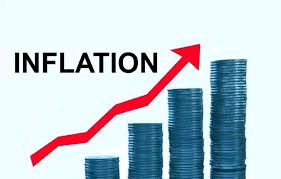Nigeria’s inflation rate has continued to rise for the fifth consecutive month due to increasing food prices, with further hikes expected as the effects of recent fuel subsidy removal and the sharp depreciation of the naira begin to filter through the economy.
According to data published on Thursday by the National Bureau of Statistics, consumer prices in May registered an annual increase of 22.4%, compared to 22.2% in the previous month. The median estimate from a Bloomberg survey of five economists was 22.1%. Inflation surged by 1.9% during the month.
The primary drivers of this upward trend were oil and fat, root vegetables, and bread. Food inflation rose to 24.8% in May from 24.6% in the previous month, while core-price growth slightly eased to 20.06% from 20.1%.
Since assuming office on May 29, President Bola Tinubu, who succeeded Muhammadu Buhari, has implemented significant changes. He abolished the long-standing and costly fuel subsidies introduced in the 1970s, removed controversial central bank Governor Godwin Emefiele, and loosened foreign-exchange controls.
The immediate consequences of these policy shifts were drastic, with pump prices nearly tripling within days, and the naira experiencing a 29% slide to 664 per dollar on Wednesday, as reported by FMDQ, a local exchange operator.
Economists at KPMG LLP predict that these transformations may lead to inflation reaching 30% in June, with pressures continuing until mid-2024. Similarly, analysts from Rand Merchant Bank, Usoro Essien, and Oyinkansola Samuel now anticipate an average inflation rate of 26.3% this year, revised from their previous forecast of 21.9%, primarily due to the cost pass-through resulting from the implemented reforms. Consequently, monetary policy authorities are likely to respond by raising the key interest rate, which could potentially end the year at 22%, compared to the current rate of 18.5%.
Nigeria’s Monetary Policy Committee (MPC) has already increased rates by 700 basis points since May 2022 in an attempt to contain the inflation rate, which has persistently exceeded the upper limit of the target range of 6% to 9% for the past year.
Ayodeji Dawodu, Director at UK-based BancTrust & Co. Investment Bank, emphasized the need for a higher interest rate environment, beyond just a high monetary policy rate, to support the free float of the foreign-exchange market and attract foreign portfolio inflows. Investors will closely monitor the central bank’s actions during its next rate-setting meeting in July, especially after President Tinubu expressed his administration’s intention to reduce interest rates and foster increased investment that sustains the economy at a higher level.










